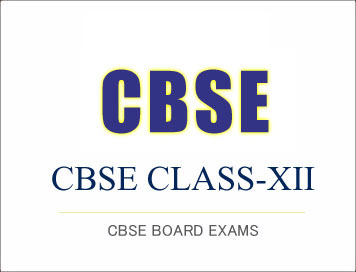CBSE Class-12 Syllabus 2019-20 (National Cadet Corps)
Disclaimer: This website is NOT associated with CBSE, for official website of CBSE visit - www.cbse.gov.in
CBSE Class-12 Syllabus 2019-20 (National Cadet Corps)
1. The training curriculum of the NCC is primarily focused towards character building, inculcating leadership qualities and skill enhancement through structured academic syllabi, practical training and opportunity of exposure/interaction beyond a cadet’s immediate environment and thereby enabling them for a brighter and progressive future.
2. The Aim of NCC is as listed below:
(a) To develop character, comradeship, discipline, secular outlook, spirit of adventure and the ideals of selfless service amongst the youth of the country.
(b) To create a human resource of organized, trained and motivated youth, to provide leadership in all walks of life and always available for the service of the nation.
(c) To provide a suitable environment to motivate the youth to take up a career in the Armed Forces.
3. Conduct of Training: The NCC training curriculum is conducted as under:
(a) Institutional Training. Conducted in respective schools/ colleges by Associate NCC Officers (ANO), Permanent Instructional (PI) staff as part of the school curriculum.
(b) Annual Training Camps (ATC). To provide practical outdoor training, each NCC cadet attends 10 days camp in the second year of junior and senior division. These camps are conducted by respective NCC units.
(c) Centrally Organized Camps (COC). These camps are conducted at all India level, as National Integration Camps, attended by cadets from all states.
(d) Adventure Training. To inculcate a spirit of adventure and team work, NCC cadets undergo various adventure activities such as para jumps, para sailing, trekking, mountaineering and sailing expeditions.
(e) Attachment Camps. To give the cadets exposure to interact with Regular Army, Navy and Air Force units, attachment camps are conducted, where cadets are attached with these units. To motivate cadets to join the Armed Forces attachment of cadets with Indian Military Academy is also conducted.
(f) Youth Exchange Programme (YEP). Selected cadets also get an opportunity to visit various foreign countries as part of YEP. In one year approximately100 cadets visit 10 -11 countries.
(g) Social Service Activities. The cadets also undertake various social service activities, by conduct of rallies to bring awareness and participate in various relief programmes/activities whenever called for.
4. Trainers – To conduct and implement the NCC training curriculum, there are three tiers of trainers.
(a) First Tier: It comprises of regular defence officers of the rank of Colour equitant rank in Air Force and Navy, Whole Time Lady Officers (WTLO) and Civilian Gliding Instructors (CGI).They are responsible for coordination and supervision of training and conduct of camps.
(b) Second Tier: Professors and teachers nominated by respective schools and colleges and trained by NCC at its NCC Officers Training Academy and on completion of Pre–Commission Course, commissioned as Associated NCC Officer (ANO) form the most important link between the cadets and NCC. They conduct most of the theory classes of non specialized subjects. Besides the Pre Commission training they attend refresher courses.
(c) Third Tier: The Junior Commissioned Officers (JCO) and Non–Commissioned Officers (NCO) from the three services and Girl Cadet Instructors (GCI) and Ship Model Instructors (SMI) conduct the specialized training of the cadets.
5. Eligibility for Enrolments as Cadet.
(a) Should be a citizen of India or a subject of Nepal.
(b) Should be on the roll of the school or college which has an NCC Unit or part thereof.
(c) The cadet should be within the age as mentioned below:-
(i) Junior Division – Not less than 13 years and below 18 years and 6 months.
(ii) Senior Division - Should be below the age of 26 years.
6. NCC Syllabus. The syllabus includes common subjects for all three wings and specialized subjects with respect to Army, Air Force and Navy. The common subjects comprise of approximately 70% and specialized service is 30% of the curriculum.
7. In addition to this syllabus, cadets attend one Annual Training Camp in the second year of junior and senior division to be eligible to appear in Part A and Part B certificate examination.
8. Cadets willing to pursue for Part C Certificate will have to attend third year senior division in the college.
Evaluation System
9. NCC presently conducts three certificate examinations, these evaluations are conducted as a written paper for theory and practical in the second year of junior division for Part ‘A’ and in the second and third year of senior division for Part ‘B’ and ‘C’. The setting of papers and evaluations for Part ‘A’ and ‘ B’ examinations are done by a board of officers at NCC Group Head Quarters headed by an officer of the rank of Brigadier and Part ‘C’ Examination at NCC state Directorate level headed by a officer of the rank of Major General.
10. Recommended evaluation pattern for NCC as an additional / elective subject in the schools affiliated with CBSE is as follows:
(a) Internal Examinations for class IX (JD) and class XI (SD) be conducted by respective ANO’s and PI staff under the supervision of respective Commanding Officers of NCC unit. Marks included in the cadets’ report card by concerned school.
(b) Part ‘A’ examination paper be set at state Directorate level and evaluated by Board of Officers at Group Headquarters. Copy of the result in respect of CBSE schools be forwarded to CBSE Board as performance evaluation of class X cadet.
(c) Part ‘B’ examination paper be set at HQ DG NCC level and evaluated by Board of Officers at Group Headquarters. Copy of the result in respect of CBSE schools be forwarded to CBSE Board as performance evaluation of class XII cadet. The result sheet in addition to the NCC cadet number will also have CBSE roll number. The marks obtained be included in the CBSE Board certificate and ‘C’ Certificate be issued by concerned State Directorate.
Click Here To Download Full Syllabus
Courtesy: CBSE
